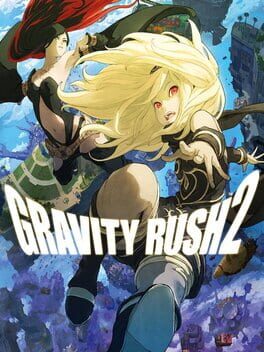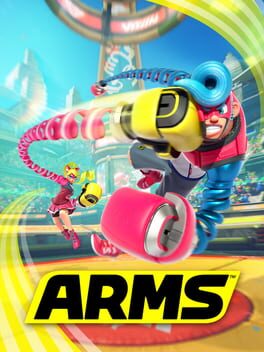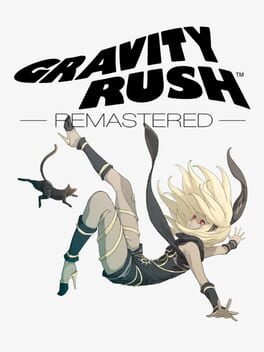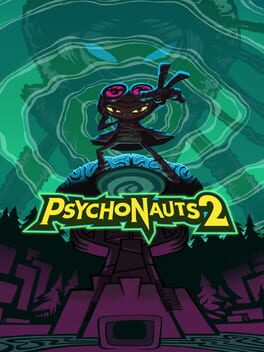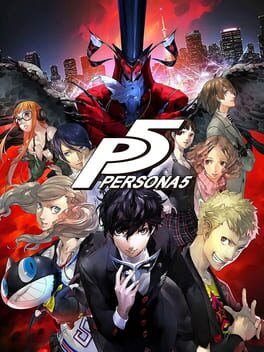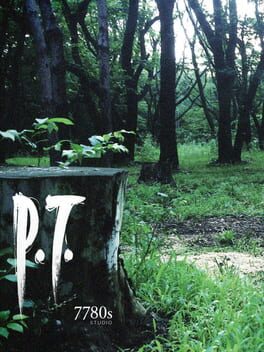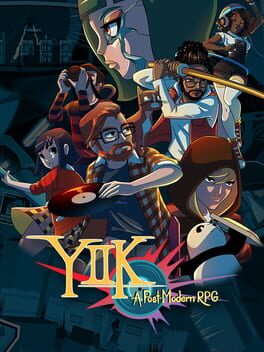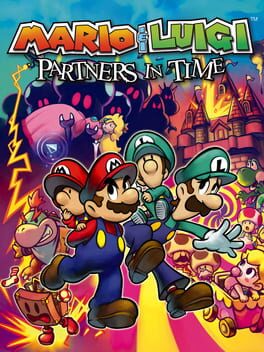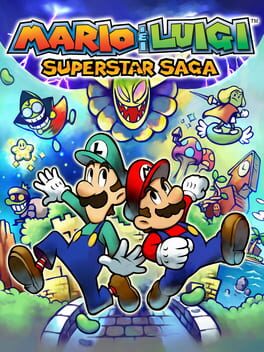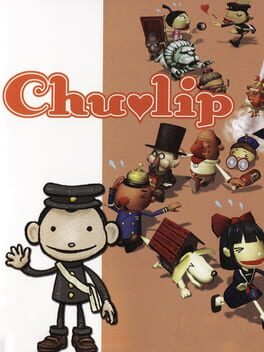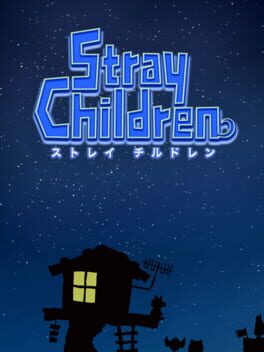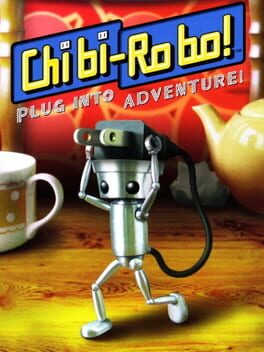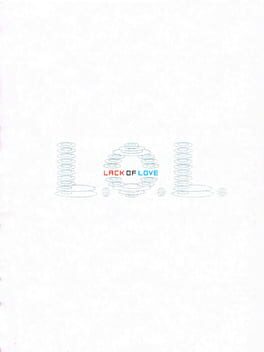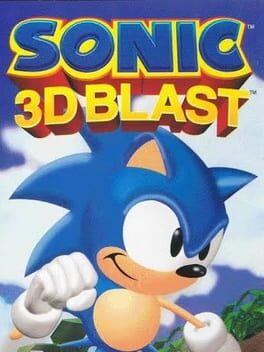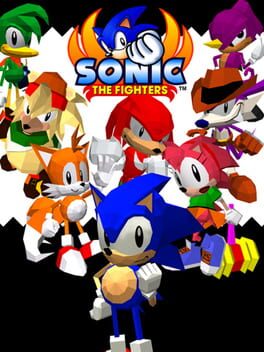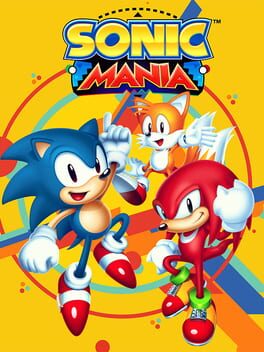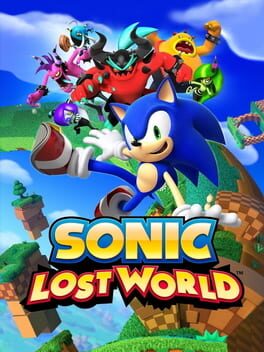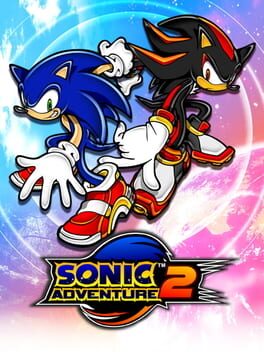t4_
11 reviews liked by t4_
Gravity Rush 2
2017
Arms
2017
ARMS was free to play as one of those NSO trial things for like a week or so, and I had my fill of it in that time. Beat the hardest difficulty of the arcade mode, fooled around online a bit, and that’s where my interest faltered and I felt like I had done everything the game had to offer, pretty much. It’s pretty fun, rather creative and in terms of presentation and personality, it has both down great! There’s just not much content to keep you engaged, so though I don’t regret playing it, the fact I had my fill during that trial period says it all.
Psychonauts 2
2021
This review contains spoilers
I don’t think I really have anything positive to say about the story that hasn’t been said by people who played this game right when it came out so before I go ham picking apart how much the second half of it bums me out I do want to say that I more or less like it and I think a lot of the positive reviews I’ve been reading here on backloggd are good, and that I agree with them! Me slapping this bad boy with a two point five and spending the next thousand words criticizing the bits that I couldn’t shake is not me saying that the writing in the game as a whole is bad, or that I didn’t enjoy it for the most part. Just wanna make it clear up front. I Like Psychonauts 2. I just haven’t really seen anybody talk about what I’m about to talk about which is wild to me because it has been a huge blinking light casting a terrible shadow over the back half of this experience for me, beginning as a small niggle and only growing larger and uglier the deeper we go.
So. Psychonauts 2 positions itself as a game about self-acceptance. Our ability to be cool to ourselves as much as we are other people, to cope with our traumas, to handle adversity in a healthy way. In a much more explicit way than in the first game, Raz every mind Raz enters involves him actively seeking to aid but not cure people. He gives them the push they need, or squeezes their hand in assurance when they’re wavering. This is a sweet premise to work from, and it works, mostly, in a vacuum. This is the real way the psychonauts are supposed to use their powers, we’re told, and the first lesson Raz has to learn is that responsibility and empathy. This is the first hitch, though; the psychonauts aren’t therapists, they’re mercenary spies, and ambiguously pseudo-nationalist ones at that? These two things, the “ask for permission before you enter a mind and only help people out” ethos and the “governments hire us to do spy work to protect people” work they actually do are simply incompatible. I would have accepted an argument that this is a game, if not for kids, then set in a childish universe, but Psychonauts 2 goes out of its way to forbid me from framing it that way, what with its central plot revolving around genocide, putting front and center imagery of violent suppression of peaceful protests even as it’s too PG to directly voice a character’s struggles with alcohol in dialogue.
Genocide really is the word I would prefer not to be typing right now and the Deluge of Grulovia is the event from which all of my little frictions with the game’s story blossom into full on disappointments. For as much as the actual battle with Maligula is key to the game as the event that shaped the lives of most of the people Raz interacts with, changed the course of his family history, and with the lengths the game goes to portray that specific event from many different points of view, it’s shocking to me how intensely uninterested it is in the context surrounding it.
Lucrecia is painted as a sympathetic character who was manipulated by people she trusted because of forces she couldn’t control within herself, but that’s not really true? It’s stated in the game that Maligula didn’t become her dominant personality until after the first time she committed mass murder, and it’s implied that it wasn’t the mass murder that did it, only the fact that she also killed her sister in the event. And sure, the first deluge event was an accident, but Lucrecia was still voluntarily and completely under her own volition aiding a fascist dictator in the violent suppression of people who were openly stated at multiple times throughout the game to be protesting the regime peacefully. When a fragment of Ford’s memory blames the Grulovian people for “pushing her too far” by…asking to not be oppressed, I think that there’s room to take that as a bitter piece of his psyche indulging in some dark thoughts, but honestly given the way the rest of the game portrays Lucrecia and the first generation of psychonauts it’s hard to say! Outside of the actual physical confrontation that had with Maligula that broke so bad, there’s just too little to contextualize how anybody else in the game felt about her, and what little we do see in Ford’s memories seems to portray it more along the lines of “we’re all worried about you!! You’re not acting like yourself!!” rather than treating her like the state sanctioned fascist she was?
And this is the thing right like, Ford should be the villain of this game, and it does seem like it’s gonna go this way with the initial reveal of what he did to Lucrecia and to Raz’s dad, but he never really answers for it. Raz forgets he’s mad at him after like two scenes. We see Raz’s dad experience the grief and trauma of remembering the truth but that’s the last time we see Raz’s family in the game – there’s no reckoning or reconciliation, no coming to terms at all. It’s a combination of two factors, one of which is a common problem in Tim Schafer games and the other a certainly unintentional but more insidious one. The first is that the end of this game is rushed as hell, and there’s no room for any real thematic resolution after the big climax. Any resolution, really. Lilly’s subplot, her dad’s, Raz’s family, Ford in particular, none of them get any time. There’s no denouement.
The other is the bigger thematic issue at play across this whole game. I’m loathe to use these words because they make me sound like a chud asshole but they’re shorthand that I think people will understand so I’ll just try to explain myself to the best of my ability. Psychonauts 2 feels like a Cozy game to me. Like a Wholesome game. I’ve seen a lot of people mention that it feels like some of the teeth are gone from specifically the comedy in this game and I would agree with that but I don’t mind it, the goofs are cute in this game and it got real actual laughs out of me a few times. But this sensibility has tendrilled out into the rest of the writing in a very uncritical way, to the detriment of this game having anything impactful to say about almost anything it wants to.
There’s a desire in Psychonauts 2 to be kind and respectful of people with mental illness and people who are struggling in general. This is good. But the aforementioned Wholesome Mentality shorthand is what gets you to the point where you’re accidentally saying that people who have been addicted to alcohol and people who resign themselves to self-pity and people who make selfishly unilateral harmful decisions for other people’s lives fully aware of the consequences that will ripple out across generations and people who commit genocide are equally worthy of forgiveness and reevaluation. It’s how you get a game that emphasizes the importance of asking for consent to enter a mind and then has you almost exclusively entering the minds of people who don’t have the faculties to provide actual consent, or worse, has Raz openly tricking people or asking people he knows can’t answer him, with every intention of doing it either way, and finally eschewing the consent thing altogether once we’ve decided that the guy we want to go into is a bad guy. In all of these cases there are justifications, and often good and reasonable ones, but there is also a lack of self-reflection. Why do we have these rules if we can so easily explain them away? How can we not consider our own relationship to power and institutional authority when we make these decisions and our excuses for them?
Psychonauts 2’s biggest failing isn’t that these things happen in the game, it’s not even that the game is so uninterested in interrogating the way it handles or presents them. It’s that it doesn’t seem to understand that there’s anything contradictory here at all.
So. Psychonauts 2 positions itself as a game about self-acceptance. Our ability to be cool to ourselves as much as we are other people, to cope with our traumas, to handle adversity in a healthy way. In a much more explicit way than in the first game, Raz every mind Raz enters involves him actively seeking to aid but not cure people. He gives them the push they need, or squeezes their hand in assurance when they’re wavering. This is a sweet premise to work from, and it works, mostly, in a vacuum. This is the real way the psychonauts are supposed to use their powers, we’re told, and the first lesson Raz has to learn is that responsibility and empathy. This is the first hitch, though; the psychonauts aren’t therapists, they’re mercenary spies, and ambiguously pseudo-nationalist ones at that? These two things, the “ask for permission before you enter a mind and only help people out” ethos and the “governments hire us to do spy work to protect people” work they actually do are simply incompatible. I would have accepted an argument that this is a game, if not for kids, then set in a childish universe, but Psychonauts 2 goes out of its way to forbid me from framing it that way, what with its central plot revolving around genocide, putting front and center imagery of violent suppression of peaceful protests even as it’s too PG to directly voice a character’s struggles with alcohol in dialogue.
Genocide really is the word I would prefer not to be typing right now and the Deluge of Grulovia is the event from which all of my little frictions with the game’s story blossom into full on disappointments. For as much as the actual battle with Maligula is key to the game as the event that shaped the lives of most of the people Raz interacts with, changed the course of his family history, and with the lengths the game goes to portray that specific event from many different points of view, it’s shocking to me how intensely uninterested it is in the context surrounding it.
Lucrecia is painted as a sympathetic character who was manipulated by people she trusted because of forces she couldn’t control within herself, but that’s not really true? It’s stated in the game that Maligula didn’t become her dominant personality until after the first time she committed mass murder, and it’s implied that it wasn’t the mass murder that did it, only the fact that she also killed her sister in the event. And sure, the first deluge event was an accident, but Lucrecia was still voluntarily and completely under her own volition aiding a fascist dictator in the violent suppression of people who were openly stated at multiple times throughout the game to be protesting the regime peacefully. When a fragment of Ford’s memory blames the Grulovian people for “pushing her too far” by…asking to not be oppressed, I think that there’s room to take that as a bitter piece of his psyche indulging in some dark thoughts, but honestly given the way the rest of the game portrays Lucrecia and the first generation of psychonauts it’s hard to say! Outside of the actual physical confrontation that had with Maligula that broke so bad, there’s just too little to contextualize how anybody else in the game felt about her, and what little we do see in Ford’s memories seems to portray it more along the lines of “we’re all worried about you!! You’re not acting like yourself!!” rather than treating her like the state sanctioned fascist she was?
And this is the thing right like, Ford should be the villain of this game, and it does seem like it’s gonna go this way with the initial reveal of what he did to Lucrecia and to Raz’s dad, but he never really answers for it. Raz forgets he’s mad at him after like two scenes. We see Raz’s dad experience the grief and trauma of remembering the truth but that’s the last time we see Raz’s family in the game – there’s no reckoning or reconciliation, no coming to terms at all. It’s a combination of two factors, one of which is a common problem in Tim Schafer games and the other a certainly unintentional but more insidious one. The first is that the end of this game is rushed as hell, and there’s no room for any real thematic resolution after the big climax. Any resolution, really. Lilly’s subplot, her dad’s, Raz’s family, Ford in particular, none of them get any time. There’s no denouement.
The other is the bigger thematic issue at play across this whole game. I’m loathe to use these words because they make me sound like a chud asshole but they’re shorthand that I think people will understand so I’ll just try to explain myself to the best of my ability. Psychonauts 2 feels like a Cozy game to me. Like a Wholesome game. I’ve seen a lot of people mention that it feels like some of the teeth are gone from specifically the comedy in this game and I would agree with that but I don’t mind it, the goofs are cute in this game and it got real actual laughs out of me a few times. But this sensibility has tendrilled out into the rest of the writing in a very uncritical way, to the detriment of this game having anything impactful to say about almost anything it wants to.
There’s a desire in Psychonauts 2 to be kind and respectful of people with mental illness and people who are struggling in general. This is good. But the aforementioned Wholesome Mentality shorthand is what gets you to the point where you’re accidentally saying that people who have been addicted to alcohol and people who resign themselves to self-pity and people who make selfishly unilateral harmful decisions for other people’s lives fully aware of the consequences that will ripple out across generations and people who commit genocide are equally worthy of forgiveness and reevaluation. It’s how you get a game that emphasizes the importance of asking for consent to enter a mind and then has you almost exclusively entering the minds of people who don’t have the faculties to provide actual consent, or worse, has Raz openly tricking people or asking people he knows can’t answer him, with every intention of doing it either way, and finally eschewing the consent thing altogether once we’ve decided that the guy we want to go into is a bad guy. In all of these cases there are justifications, and often good and reasonable ones, but there is also a lack of self-reflection. Why do we have these rules if we can so easily explain them away? How can we not consider our own relationship to power and institutional authority when we make these decisions and our excuses for them?
Psychonauts 2’s biggest failing isn’t that these things happen in the game, it’s not even that the game is so uninterested in interrogating the way it handles or presents them. It’s that it doesn’t seem to understand that there’s anything contradictory here at all.
Persona 5
2016
P.T.
2014
What's really interesting about P.T. is the liberties we afford to something that isn't just unfinished, but absolutely unfinishable. It's essentially a palette of ideas implying the shadow of a far more elaborate and terrifying whole (which we'll never get to see anymore of) - and if that isn't an ironically meta expression of what makes classic Horror work then I don't know what is.
A part of it is in the execution – P.T.’s ideas are braindead simple, but they’re represented in a very fittingly-and-convincingly photorealistic way that continues to age quite well. It isn’t really meant to surprise or refresh more than precisely evoke a familiar feeling and aesthetic.
This means that people can freely acclaim P.T. as essentially perfect, since it's a clean execution of setup for a nonexistent whole – just the fun parts. It has no time to run out of steam or to overextend and compromise the uncertainty of its world and rules. It's an island of ideal horror tropes sharpened and angled towards nowhere, unburdened (mostly) from narrative, meaning and interpretation. Where a full game would likely introduce more certainty/specificity in interpretation so as to appear cohesive, P.T. gets to relate on a slightly more direct level to each player's understanding of its sharply-imagined classic imagery - just the scares, the atmosphere, the thesis - and that purity is worth something.
A part of it is in the execution – P.T.’s ideas are braindead simple, but they’re represented in a very fittingly-and-convincingly photorealistic way that continues to age quite well. It isn’t really meant to surprise or refresh more than precisely evoke a familiar feeling and aesthetic.
This means that people can freely acclaim P.T. as essentially perfect, since it's a clean execution of setup for a nonexistent whole – just the fun parts. It has no time to run out of steam or to overextend and compromise the uncertainty of its world and rules. It's an island of ideal horror tropes sharpened and angled towards nowhere, unburdened (mostly) from narrative, meaning and interpretation. Where a full game would likely introduce more certainty/specificity in interpretation so as to appear cohesive, P.T. gets to relate on a slightly more direct level to each player's understanding of its sharply-imagined classic imagery - just the scares, the atmosphere, the thesis - and that purity is worth something.
As a Mario-backed RPG, there are certain expectations that the player might have upon entering into this game if they're familiar with the franchise. The plot is as predictable as would be expected, to the point where "Rescue Princess Peach" could be the free space on your Mario game bingo card. The music is upbeat and generally enjoyable, specifically the battle music, which is admittedly important in games like this. The characters and dialogue are oftentimes enjoyable and charming, and can be quite humorous. These are all metrics you would probably expect from a Mario-type game, and Mario & Luigi: Partners In Time delivers on all of them fairly well. However, it's the combat that you spend most of your time in while playing this game, and it's the combat where the game very much fails to deliver.
Turn-based RPGs live and die by their combat systems. That's not to say that combat is what makes these games great, far from it. However, most popular or widely acclaimed turn-based RPGs are praised and enjoyed, firstly, for their story, their depth, their world, and their characters. In some games, combat is just a "story delivery system," and any slight monotony is forgiven in service of progressing the story forward. The best games of this genre are the ones that innovate, not only on story, but combat as well, in order to make all aspects of the game satisfying and enjoyable. The worst games of this genre, though, end up as tiresome and repetitive, and it's often because the core gameplay-the combat-is lacking. No matter how interesting the characters, how charming the world, how engaging the story; if the base gameplay is repetitive and unenjoyable, the game will likely fall flat on its face.
So where does that leave Mario & Luigi: Partners In Time? Well, the combat is, unfortunately, extremely repetitive and uninteresting. And as the main gameplay aspect, it gets old very quickly. There's only so many times you can perform the same attack on generic enemies while staying interested, and it takes far too long for each battle to finish. Boss designs are certainly more varied than common enemies, but even then, their health is always significantly higher than it needs to be. Even then, none of the fights are particularly difficult, so all a boss fight really means is that it'll take 15 minutes to defeat them instead of 1 minute. There simply isn't enough variety in the combat to make it compelling or fun.
So what aspect of this game is there to keep players interested? The plot? As mentioned previously, there isn't a whole lot there to latch on to. In fact, the plot in this game is actually less interesting than the average Mario non-platforming game, which means it fails to clear an already low bar. The characters? They are charming, and the dialogue definitely has its moment, but certainly not interesting enough to carry a full game. The villains and world are also about as formulaic as they get, so there's nothing there to get attached to. Any puzzles that exist in the overworld feel more like time wasters than they do interactive challenges. Sadly, there isn't enough in this title to make the tedious gameplay palatable, and the result is something that loses its charm quickly and ends up wholly mediocre.
Turn-based RPGs live and die by their combat systems. That's not to say that combat is what makes these games great, far from it. However, most popular or widely acclaimed turn-based RPGs are praised and enjoyed, firstly, for their story, their depth, their world, and their characters. In some games, combat is just a "story delivery system," and any slight monotony is forgiven in service of progressing the story forward. The best games of this genre are the ones that innovate, not only on story, but combat as well, in order to make all aspects of the game satisfying and enjoyable. The worst games of this genre, though, end up as tiresome and repetitive, and it's often because the core gameplay-the combat-is lacking. No matter how interesting the characters, how charming the world, how engaging the story; if the base gameplay is repetitive and unenjoyable, the game will likely fall flat on its face.
So where does that leave Mario & Luigi: Partners In Time? Well, the combat is, unfortunately, extremely repetitive and uninteresting. And as the main gameplay aspect, it gets old very quickly. There's only so many times you can perform the same attack on generic enemies while staying interested, and it takes far too long for each battle to finish. Boss designs are certainly more varied than common enemies, but even then, their health is always significantly higher than it needs to be. Even then, none of the fights are particularly difficult, so all a boss fight really means is that it'll take 15 minutes to defeat them instead of 1 minute. There simply isn't enough variety in the combat to make it compelling or fun.
So what aspect of this game is there to keep players interested? The plot? As mentioned previously, there isn't a whole lot there to latch on to. In fact, the plot in this game is actually less interesting than the average Mario non-platforming game, which means it fails to clear an already low bar. The characters? They are charming, and the dialogue definitely has its moment, but certainly not interesting enough to carry a full game. The villains and world are also about as formulaic as they get, so there's nothing there to get attached to. Any puzzles that exist in the overworld feel more like time wasters than they do interactive challenges. Sadly, there isn't enough in this title to make the tedious gameplay palatable, and the result is something that loses its charm quickly and ends up wholly mediocre.
This is a really good intro RPG. It has a lot of mechanics that force you to stay attentive during battles, which I can imagine people who think that turn-based combat is pretty boring might enjoy. It also has a lot of memorable characters and witty dialogue; not to the extent of Undertale, but I laughed a lot regardless.
However, for as much as I enjoy these aspects of Superstar Saga, this is one of those games where the little inconveniences are so plentiful that it ultimately sours my enjoyment. The map isn't very detailed, you can wander into areas you're not supposed to be in yet and get demolished by enemies, button presses are often unresponsive, trying to create a 3D space in a 2D game doesn't work (especially when there is a lot of platforming), cycling through all of your overworld abilities is cumbersome, dying sets you back to your last save point instead of letting you restart the battle, and losing just one of the bros cripples you in combat and requires you to waste a turn healing them unless you can finish the battle immediately.
But my least favorite thing is the abundance of mini-games that are mandatory for progression. Some might see these a good change of pace, but I see them as filler since they often require a new control scheme and have nothing to do with the rest of the game.
I also have my problems with the combat system. Even though it keeps you on your toes by requiring precise button-press timing to maximize efficiency, it's never quite as satisfying as I would like. First of all, just like in the overworld, several attack animations try to use a nonexistent 3D space, making it difficult to avoid things on your first time encountering enemies. Second, the game does not teach you how to most effectively use your bros moves (essentially your special abilities that cost mp), and even with the slowed down versions to help you learn the timing, trying to get the hang of them is frustrating, especially the advanced versions which basically expect you to figure out how to perform them on your own. Third, the system itself is inherently flawed. By making a battle system that is reliant on precision, all it does is make you frustrated when you fail. It isn't satisfying to perform precise timing well because you have to do it in every single fight, and the only reward for performing precise actions well is not performing poorly. Compare this to the rhythm battle system in Mother 3; by learning the rhythm of the enemies you fight and timing your attacks in synch with the rhythm, you are rewarded with doing more damage and ending fights more quickly. Essentially this is the same idea but used in the opposite direction.
From what I understand, the 3DS remake improved a lot of these issues, and I kinda wish I played that version instead. Actually, the only reason I played the GBA original is because I really admire how this game looks. In fact, I'll praise the visuals for being my favorite part of the game; the entire world is colorful and vibrant, all the sprite work is really good, and I especially love the animation on Mario and Luigi themselves. The use of squash & stretch and exaggeration on their animation is endlessly entertaining, and at the very least that made the experience on GBA somewhat enjoyable.
I think that I will like this game more on a second playthrough, especially if I play the remake with all the quality of life improvements. I enjoyed what this game did well, but I'm really hoping that future titles don't have the same issues.
However, for as much as I enjoy these aspects of Superstar Saga, this is one of those games where the little inconveniences are so plentiful that it ultimately sours my enjoyment. The map isn't very detailed, you can wander into areas you're not supposed to be in yet and get demolished by enemies, button presses are often unresponsive, trying to create a 3D space in a 2D game doesn't work (especially when there is a lot of platforming), cycling through all of your overworld abilities is cumbersome, dying sets you back to your last save point instead of letting you restart the battle, and losing just one of the bros cripples you in combat and requires you to waste a turn healing them unless you can finish the battle immediately.
But my least favorite thing is the abundance of mini-games that are mandatory for progression. Some might see these a good change of pace, but I see them as filler since they often require a new control scheme and have nothing to do with the rest of the game.
I also have my problems with the combat system. Even though it keeps you on your toes by requiring precise button-press timing to maximize efficiency, it's never quite as satisfying as I would like. First of all, just like in the overworld, several attack animations try to use a nonexistent 3D space, making it difficult to avoid things on your first time encountering enemies. Second, the game does not teach you how to most effectively use your bros moves (essentially your special abilities that cost mp), and even with the slowed down versions to help you learn the timing, trying to get the hang of them is frustrating, especially the advanced versions which basically expect you to figure out how to perform them on your own. Third, the system itself is inherently flawed. By making a battle system that is reliant on precision, all it does is make you frustrated when you fail. It isn't satisfying to perform precise timing well because you have to do it in every single fight, and the only reward for performing precise actions well is not performing poorly. Compare this to the rhythm battle system in Mother 3; by learning the rhythm of the enemies you fight and timing your attacks in synch with the rhythm, you are rewarded with doing more damage and ending fights more quickly. Essentially this is the same idea but used in the opposite direction.
From what I understand, the 3DS remake improved a lot of these issues, and I kinda wish I played that version instead. Actually, the only reason I played the GBA original is because I really admire how this game looks. In fact, I'll praise the visuals for being my favorite part of the game; the entire world is colorful and vibrant, all the sprite work is really good, and I especially love the animation on Mario and Luigi themselves. The use of squash & stretch and exaggeration on their animation is endlessly entertaining, and at the very least that made the experience on GBA somewhat enjoyable.
I think that I will like this game more on a second playthrough, especially if I play the remake with all the quality of life improvements. I enjoyed what this game did well, but I'm really hoping that future titles don't have the same issues.
The credits are literally rolling as I'm typing this. I gathered a lot of thoughts on Superstar Saga during my playthrough and I wanted to see it through to the end before I put them into words. Needless to say I got very antsy.
I didn't play this game during its heyday, but I did play Partners in Time (and Super Mario RPG) and held that game in high regard. It's the only other M&L game I played and I have an appreciation for its combat system. A four-person party with each member assigned to a different face button, along with a plethora of various team attacks and offensive items that both require an understanding of the timing to pull them off while also rewarding peerless play by allowing seemingly infinite combos until the time window to pull them off gradually become more difficult. It's fun, stylish, an addictive. I played Partners in Time twice, once as a kid and later as a teenager (I'm 23 now) and both times I couldn't resist running into every enemy in the overworld to have another attempt at mastering each and every attack.
I was aware of Superstar Saga and its premise. My understanding was, being Partners in Time's former, that it was just a more primitive, simple version. That turned out to be true, but my experience and feelings got a little more complicated as I sunk my teeth.
At first glance, SS is as charming as your standard Mario fare and more. After looking at Alphadream's Tomato Adventure (a game I am now currently playing) you can see why Nintendo chose them for the job. This game is brimming with bright colors and beautiful spritework for the GBA. The writing is entertaining and the humor works more than it doesn't. My experience through the first act of the game went joyfully, only being minorly annoyed by the lengthy tutorials for some menial menu navigating here and there.
But as you get settled in... does the colorful paintjob start to peel? What's left underneath? It's a slow and painful peel, as enemy encounters become more plentiful and complex while your arsenal of your own... doesn't seem to evolve as much. SS painfully lacks the multitudes of combat options its predecessors grant you. What is sparsely given to you, whether a hammer attack or a Bro Command, is dripfed to you throughout what seems to be a needlessly overly-long campaign, one that is incessantly padded with fetchquests within fetchquests, constant meaningless backtracking, and an obtuse world map. All the while the vastness of the Beanbean Kingdom slowly just becomes one blur, areas upon areas of similar looking tiles, assets, and locales. Try finding a crucial NPC in a nameless cave when the entire world you're adventuring is one massive square, filled with smaller room shaped squares of green grass and flowers, all with their own nameless caves that lead to god-knows-what except your destination.
SS becomes a game of walking around, either avoiding enemies or accidentally getting into fights you don't want to be in.
The game makes its attempts to break the pace with its dungeons but man. None of them are good. Not a single one. Every single dungeon in this game is a non-linear sequence of square rooms that use the same sequence of puzzles. Use a hammer to open a door. Use a hammer to squish Luigi into the floor so he can go under a grated fence and use his hammer to open a door for Mario to open a hammer to open the boss door. Use a hammer to squish Mario so he can fit through a small opening and use his hammer to open a door for Luigi to go into to use his hammer to press a button to open a door. Use the hammer. Use the hammer. Press a button. Squish Mario. Squish Luigi. Hammer. Button. Squish. Barrel. This is done in just about every combination sequence possible, and they just get longer and longer and longer. Because late game difficulty is longer puzzles.
And then you're back walking around and around and around and trying to find one damn thing in one specific corner of the game world that you were given one line of dialogue of description to find. Just one meaningless macguffin to find and then it's on to the next one and the next and then the game is over. By the end of the game I barely felt any different than the Mario and Luigi I started with. Maybe even with a little piece of my soul missing after all the aimless walking and hours wasted.
The balancing also just seems.. odd. I tried my god damnest the whole game but I could not get either of the Bros to be even remotely even stat-wise. In any combination of stat bonuses and equipment and badges and what-not, Mario just always trumps Luigi in stats. The absolute best I could do was deprive Mario of Bro Points and make him the designated physical combatant and dumped all possible BP gain onto Luigi, sort of like a mage. It sort of worked but if was the only sort of control I could get out of that situation.
General consensus is that this is a 20 hour game and it took me about that. The problem is that this game should be 10 hours. By the first act I felt a little drained by the lengthy tutorials but I was eager to level up and learn new abilities. By the ending of the first half I felt barely any different, and I was already tired of the incessant travelling and clunky, time wasting, copy-pasted puzzles. By the last quarter I had long wanted out, but by principle of sunk-cost fallacy I felt like I had to push it through to the end. How I feel/felt by the end? Right now? Looking at my handheld emulator right now giving me the "Thank you for playing" screen? Empty, I guess. Drained.
And yet it's not the worst JRPG I've ever played. Even if the exploration itself is as monotonous as they come it's not even downright bad. It's just boring. I'll take a monotonous game coated with visual sugar and interactable spice combat the way this game did over some of the meandering menu-flipping fare that comes out today. It can be a hair-pulling experience but it's one with things to still appreciate. I love the characters of the Beanbean Kingdom. Fawful had great dialogue. Bowser's role in the story was intriguing and was a good way to make him a more involved character, especially in a conflict that didn't particularly involve him. The entire arc of the game focusing on Luigi was the most fun part of the game and had some depth to how he views himself in the world. I loved the Prince and his characterization as a stunning heartthrob and companion that didn't fall into some insufferable narcissict archetype. It's a cute game that's brimming with color and style that falls flat when it decides to meander you with its gameplay, but it's far more appreciable than what you'd expect.
I didn't play this game during its heyday, but I did play Partners in Time (and Super Mario RPG) and held that game in high regard. It's the only other M&L game I played and I have an appreciation for its combat system. A four-person party with each member assigned to a different face button, along with a plethora of various team attacks and offensive items that both require an understanding of the timing to pull them off while also rewarding peerless play by allowing seemingly infinite combos until the time window to pull them off gradually become more difficult. It's fun, stylish, an addictive. I played Partners in Time twice, once as a kid and later as a teenager (I'm 23 now) and both times I couldn't resist running into every enemy in the overworld to have another attempt at mastering each and every attack.
I was aware of Superstar Saga and its premise. My understanding was, being Partners in Time's former, that it was just a more primitive, simple version. That turned out to be true, but my experience and feelings got a little more complicated as I sunk my teeth.
At first glance, SS is as charming as your standard Mario fare and more. After looking at Alphadream's Tomato Adventure (a game I am now currently playing) you can see why Nintendo chose them for the job. This game is brimming with bright colors and beautiful spritework for the GBA. The writing is entertaining and the humor works more than it doesn't. My experience through the first act of the game went joyfully, only being minorly annoyed by the lengthy tutorials for some menial menu navigating here and there.
But as you get settled in... does the colorful paintjob start to peel? What's left underneath? It's a slow and painful peel, as enemy encounters become more plentiful and complex while your arsenal of your own... doesn't seem to evolve as much. SS painfully lacks the multitudes of combat options its predecessors grant you. What is sparsely given to you, whether a hammer attack or a Bro Command, is dripfed to you throughout what seems to be a needlessly overly-long campaign, one that is incessantly padded with fetchquests within fetchquests, constant meaningless backtracking, and an obtuse world map. All the while the vastness of the Beanbean Kingdom slowly just becomes one blur, areas upon areas of similar looking tiles, assets, and locales. Try finding a crucial NPC in a nameless cave when the entire world you're adventuring is one massive square, filled with smaller room shaped squares of green grass and flowers, all with their own nameless caves that lead to god-knows-what except your destination.
SS becomes a game of walking around, either avoiding enemies or accidentally getting into fights you don't want to be in.
The game makes its attempts to break the pace with its dungeons but man. None of them are good. Not a single one. Every single dungeon in this game is a non-linear sequence of square rooms that use the same sequence of puzzles. Use a hammer to open a door. Use a hammer to squish Luigi into the floor so he can go under a grated fence and use his hammer to open a door for Mario to open a hammer to open the boss door. Use a hammer to squish Mario so he can fit through a small opening and use his hammer to open a door for Luigi to go into to use his hammer to press a button to open a door. Use the hammer. Use the hammer. Press a button. Squish Mario. Squish Luigi. Hammer. Button. Squish. Barrel. This is done in just about every combination sequence possible, and they just get longer and longer and longer. Because late game difficulty is longer puzzles.
And then you're back walking around and around and around and trying to find one damn thing in one specific corner of the game world that you were given one line of dialogue of description to find. Just one meaningless macguffin to find and then it's on to the next one and the next and then the game is over. By the end of the game I barely felt any different than the Mario and Luigi I started with. Maybe even with a little piece of my soul missing after all the aimless walking and hours wasted.
The balancing also just seems.. odd. I tried my god damnest the whole game but I could not get either of the Bros to be even remotely even stat-wise. In any combination of stat bonuses and equipment and badges and what-not, Mario just always trumps Luigi in stats. The absolute best I could do was deprive Mario of Bro Points and make him the designated physical combatant and dumped all possible BP gain onto Luigi, sort of like a mage. It sort of worked but if was the only sort of control I could get out of that situation.
General consensus is that this is a 20 hour game and it took me about that. The problem is that this game should be 10 hours. By the first act I felt a little drained by the lengthy tutorials but I was eager to level up and learn new abilities. By the ending of the first half I felt barely any different, and I was already tired of the incessant travelling and clunky, time wasting, copy-pasted puzzles. By the last quarter I had long wanted out, but by principle of sunk-cost fallacy I felt like I had to push it through to the end. How I feel/felt by the end? Right now? Looking at my handheld emulator right now giving me the "Thank you for playing" screen? Empty, I guess. Drained.
And yet it's not the worst JRPG I've ever played. Even if the exploration itself is as monotonous as they come it's not even downright bad. It's just boring. I'll take a monotonous game coated with visual sugar and interactable spice combat the way this game did over some of the meandering menu-flipping fare that comes out today. It can be a hair-pulling experience but it's one with things to still appreciate. I love the characters of the Beanbean Kingdom. Fawful had great dialogue. Bowser's role in the story was intriguing and was a good way to make him a more involved character, especially in a conflict that didn't particularly involve him. The entire arc of the game focusing on Luigi was the most fun part of the game and had some depth to how he views himself in the world. I loved the Prince and his characterization as a stunning heartthrob and companion that didn't fall into some insufferable narcissict archetype. It's a cute game that's brimming with color and style that falls flat when it decides to meander you with its gameplay, but it's far more appreciable than what you'd expect.
